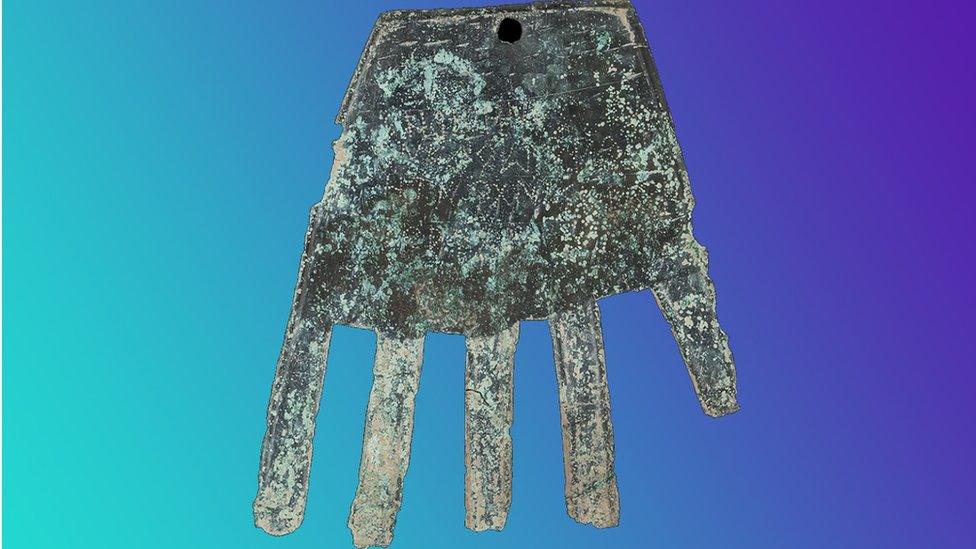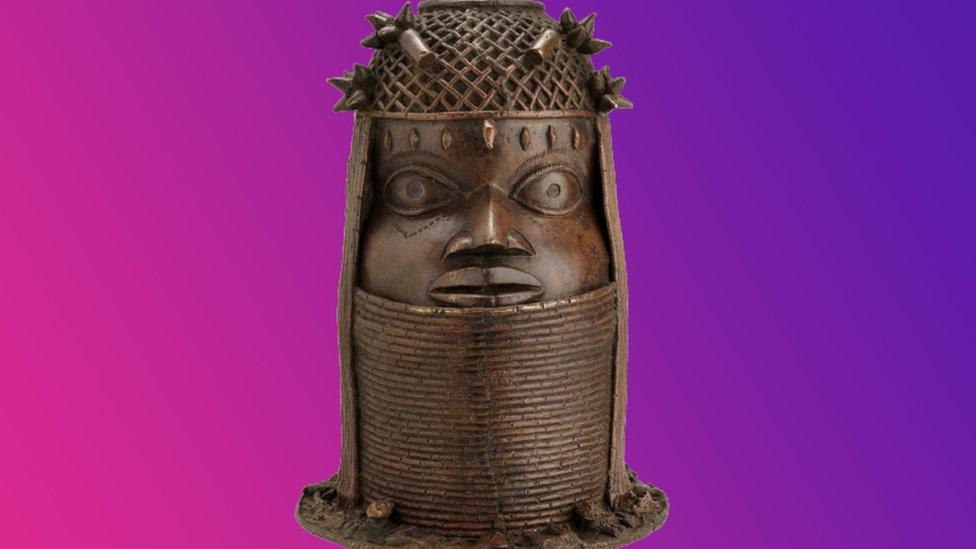Ancient language possibly found on 2,000 year-old artefact in Pyrenees
- Published
- comments

The bronze hand is over 2,000 years old
Engravings on a 2,000-year-old bronze hand could be connected to an ancient language, according to a new study.
The artefact was first discovered in 2021 at an archaeological site in the Pyrenees in northern Spain.
The hand features perhaps the oldest and longest example of the very rare Vasconic language.
Researchers who found the hand say the words on it could be linked to Basque, a language spoken today by many people in parts of the western Pyrenees in Spain and France.
The scientists say the first word on the bronze artefact, which may have been spelled out using the Latin alphabet, is "sorioneku" or "sorioneke" — which shares similarities with the modern Basque word "zorioneko," meaning"good fortune".
They say the hand may have been put outside the entrance of a property for good luck.
"The text inscribed on this artefact, which was found at the entrance of a domestic building, is interpreted as apotropaic, a token entreating good fortune," the study said.

The artefact was found at an archaeological site in the Pyrenees in northern Spain
The findings suggest ancestors of modern Basque people already knew and used writing to some extent all those years ago.
"The discovery of the Hand of Irulegi has opened a new horizon to unravel the history behind the most enigmatic language still alive in Europe: the Basque language," said Mikel Edeso Egia, who is from the Aranzadi Science Society, a non-profit organisation based in Spain's Basque region that oversaw the research team.
"Unearthing this exceptional object has brought significant advances in the archaeological and linguistic worlds. But it has also opened up many new questions."
- Published25 November 2021

- Published15 February 2024
- Published30 June 2022

